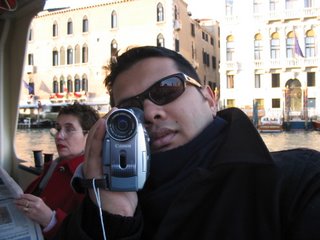India's economic report card - from BBC.co.uk
By Kaushik Basu
Professor of economics, Cornell University



For non-economists the World Development Indicators (WDI), published annually by the World Bank, must seem like a cure for insomnia. It is long, is written on large-format paper, crammed with numbers and consists of very few words.
But, as an economist, I find the WDI to be a very valuable source book.
The paucity of words means I need have no fear of being burdened with somebody's expert opinion (and can merely inflict mine on you). While impressionistic writings and generalisations have their role, and pure statistics has its own risks, the latter often helps us cut through popular hype to see economic reality as it is.
The recently released WDI 2006 is a wonderful document for evaluating cross-country performance. This column's focus being what it is, let us begin with South Asia.
Sobering
Given the huge positive press that India has received in recent times, it is sobering to discover that India's per capita income is just a shade higher than that of sub-Saharan Africa, and about one-sixth that of Latin America.
Equally surprising is that 35% of India's population lives on less than $1 a day, which is comparable to Bangladesh's 36% and much worse than Pakistan's 17% and Sri Lanka's 6%.
What then is the basis of optimism for India?
It has everything to do with change.
To check this out statistically I pulled out WDI 1998 from my shelf. This gives data for mainly 1996 and so is unaffected by the East Asian crisis which started in 1997.
In 1996, India had a per capita income of $380, Pakistan $480, Bangladesh $260 and Sri Lanka $740.
Compare these with the figures in the latest WDI (which pertain to 2004).
India's per capita income has risen to $620 and has overtaken Pakistan's $600; and the relative gap with Sri Lanka, which now has a per capita income of $1010, has narrowed. Bangladesh which currently has a per capita income of $440 has grown reasonably well and so has lost out with India more marginally.
Exaggeration
How does India's growth compare with the world beyond South Asia?
The recent cover story on the Indian economy in Time magazine repeats what is common wisdom, to wit, that over the last three years India has achieved "the second fastest [growth] rate in the world".
The WDI allows us to check the veracity of this statistically. And this common wisdom turns out to be an exaggeration.
If we take the national income growth rate over the period 2000-04, with an annual growth rate of 6.2% India was not second but the 17th fastest-growing nation in the world.
If we take a longer period, 1990 to 2004, India moves up to being the fourth fastest-growing economy in the world, behind China, Vietnam and Mozambique.
And if we take an even longer view - from 1980 to now, India does indeed come second, behind China and virtually tying with Vietnam.
So what India has excelled in is sustained growth. It is this that has given rise to hope. And, combined with the vibrancy of democracy and the successes of higher education in India, this has led some commentators to argue that its future augurs even better than China's.
Inequality
One worrying feature that could cause political instability and jeopardise this bullish forecast - and much of South Asia shares this anxiety - is the problem of poverty and inequality.
Much has been written about this but again some statistical fact checking sheds new light.
Inequality in South Asia is large but not as large as in much of the rest of the world.
Let us consider the ratio of income earned by a country's richest 10% and the poorest 10%. The ratio for India is 7.3. That is, the richest 10% of the population is a little over seven times as rich as the poorest 10%.
All South Asian nations have similar ratios.
This is a lot of inequality but not as much as in China which has a ratio of 18.4 or the United States 15.7.
The problem with South Asia is that, being poor, even this smaller inequality means much greater hardship for the poor and this is what is feeding various kinds of rebellious movements in the region.
This will be one of the most formidable challenges confronting India over the next decade if it is to live up to its promise.
The difficulty arises from the fact that the rising inequality is largely a concomitant of globalisation and, hence, for a single country to take action against this is to take the risk of a pathological backlash on the economy.
To try to cap high-end income, as some have naively suggested, will cause the flight of skilled citizenry and capital to other nations and will exacerbate poverty.
To wantonly subsidise the poor or to dole out largesse will cause fiscal bankruptcy, which will make the problem worse in the long run.
The focus will have to be on creating private-sector jobs with the complementary use of a few well-directed subsidies.
This is not a matter of sloganeering and populist pronouncements but will require a combination of scientifically designed policy interventions that reach out to the poor without damaging market incentives and the entrepreneurial spirit.






